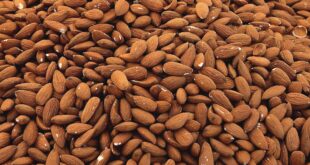A new study published in the journal Nutrition and Healthy Aging is the first to examine the effect of the 16:8 diet — named for its 16 hours of fasting and its 8 hours of feasting — on weight loss in obese adults.
The 8-h time restricted feeding produces mild caloric restriction and weight loss, without calorie counting; it may also offer clinical benefits by reducing blood pressure. Image credit: Doris Jungo / Pexels / Sci-News.com.
“Time restricted feeding decreases energy intake without calorie counting and may be a viable option for weight loss,” said study senior author Dr. Krista Varady, a researcher in the Department of Kinesiology and Nutrition at the University of Illinois at Chicago, and her colleagues.
“However, the effect of this diet on body weight in obese subjects has never been examined.”
“We investigated the effects of 8-hour time restricted feeding on body weight and metabolic disease risk factors in obese adults.”
To study the effect of this type of diet, Dr. Varady and co-authors worked with 23 obese volunteers who had an average age of 45 and average body mass index (BMI) of 35.
Between the hours of 10 a.m. and 6 p.m. the dieters could eat any type and quantity of food they desired, but for the remaining 16 hours they could only drink water or calorie-free beverages. The study followed the participants for 12 weeks.
When compared to a matched historical control group from a previous weight loss trial on a different type of fasting, the team found that those who followed the time-restricted eating diet consumed fewer calories, lost weight and had improvements in blood pressure.
On average, participants consumed about 350 fewer calories, lost about 3% of their body weight and saw their systolic blood pressure decreased by about 7 mm Hg.
All other measures, including fat mass, insulin resistance and cholesterol, were similar to the control group.
“The take-home message from this study is that there are options for weight loss that do not include calorie counting or eliminating certain foods,” Dr. Varady said.
“The results are similar to the results we’ve seen in other studies on alternate day fasting, another type of diet, but one of the benefits of the 16:8 diet may be that it is easier for people to maintain.”
“We observed that fewer participants dropped out of this study when compared to studies on other fasting diets.”
While the research indicates daily fasting works for weight loss, there have not yet been studies to determine if it works better than other diets, although the scientists observed the weight loss to be slightly less than what has been observed in other intermittent fasting diet studies.
“These preliminary data offer promise for the use of time-restricted feeding as a weight loss technique in obese adults, but longer-term, large-scale randomized controlled trials are required,” the study authors said.
“The 16:8 diet is another tool for weight loss that we now have preliminary scientific evidence to support. When it comes to weight loss, people need to find what works for them because even small amounts of success can lead to improvements in metabolic health,” Dr. Varady said.
_____
Kelsey Gabel et al. 2018. Effects of 8-hour time restricted feeding on body weight and metabolic disease risk factors in obese adults: A pilot study. Nutrition and Healthy Aging 4 (4): 345-353; doi: 10.3233/NHA-170036
 #Bizwhiznetwork.com Innovation ΛI |Technology News
#Bizwhiznetwork.com Innovation ΛI |Technology News




